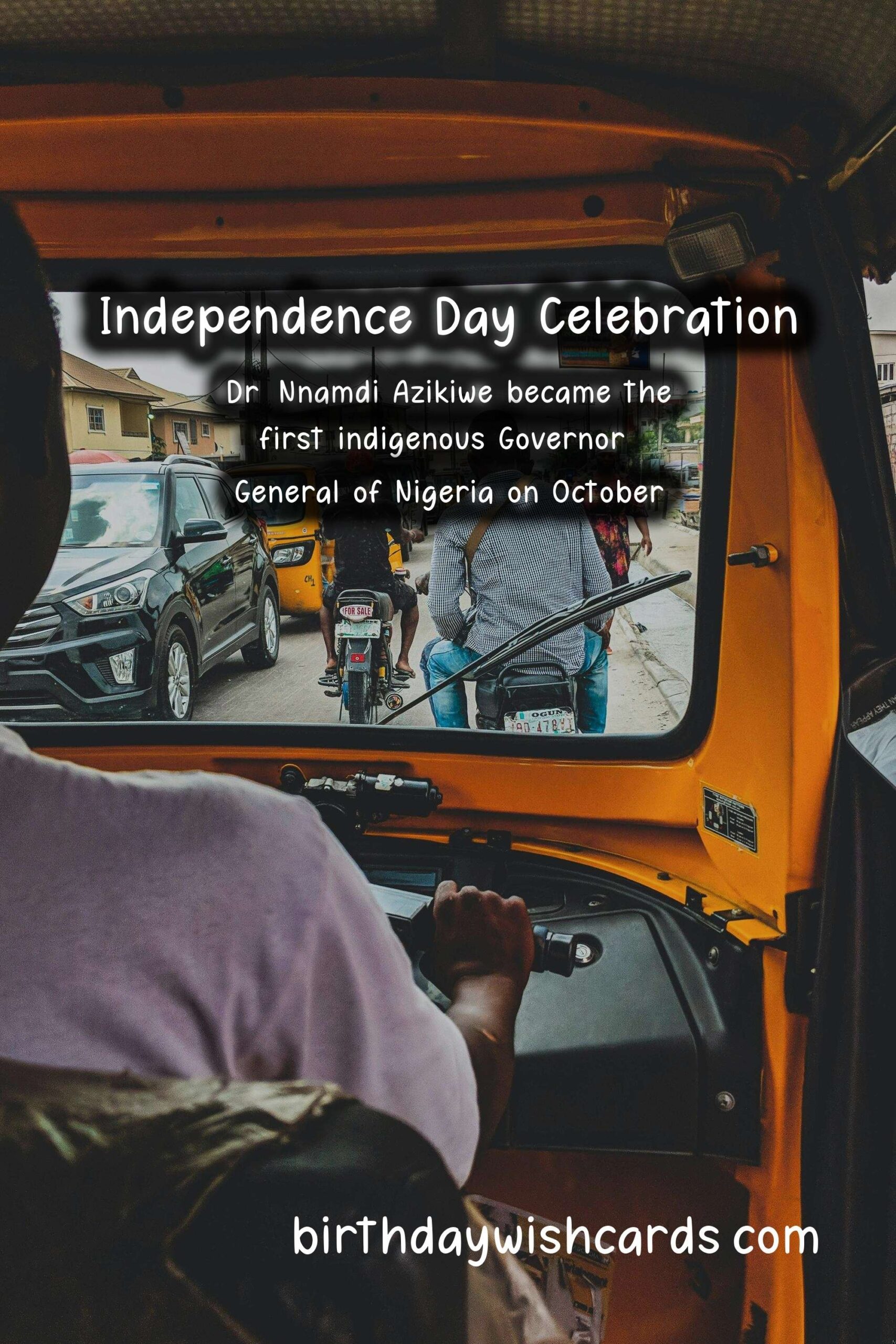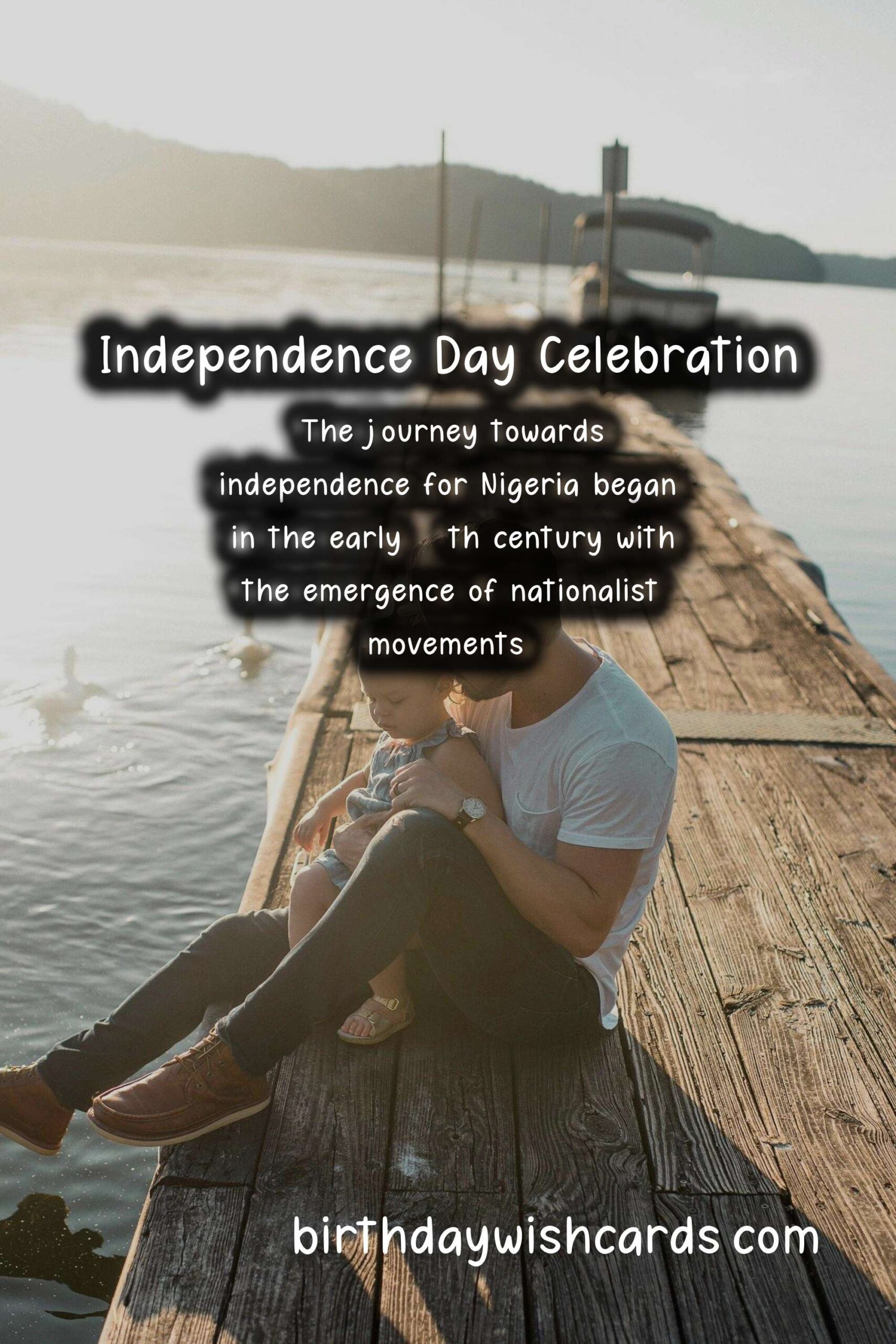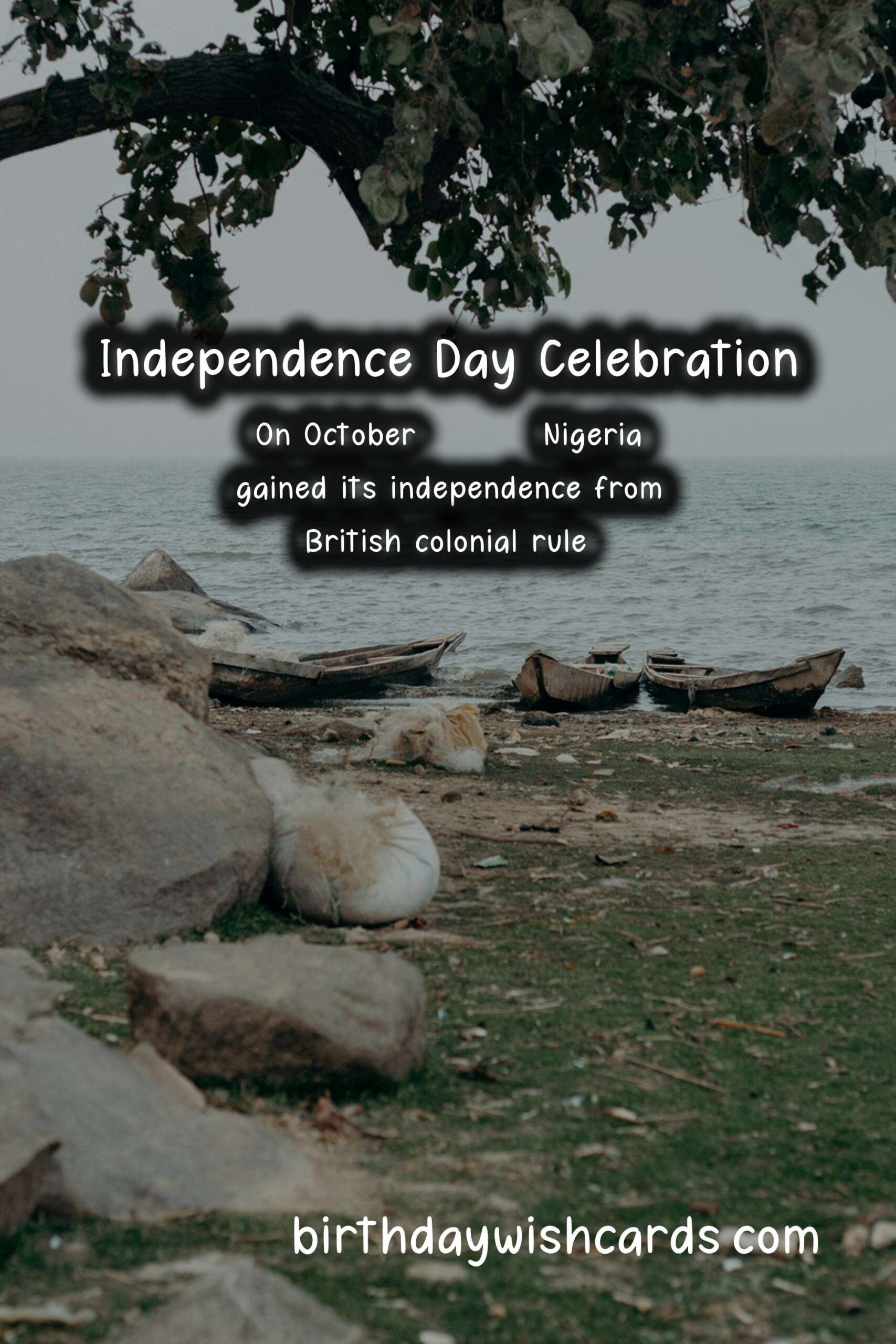Celebrating October 1 – Independent Day
October 1 – A Day of Pride and Freedom
October 1 is a special day that is celebrated with great pride and joy by the people of Nigeria. It marks the day of independence of the country from British colonial rule and the beginning of a new era of freedom and self-governance. It is a national holiday that brings together people from all walks of life to commemorate the struggle and sacrifices made by the brave men and women who fought for their nation’s liberty. As we celebrate this important milestone, let us take a closer look at the significance and history of October 1, and how it has shaped the identity and spirit of the Nigerian people.
The Road to Independence
The journey towards independence for Nigeria began in the early 20th century when the country was still known as the Colony and Protectorate of Nigeria under British rule. This period was marked by growing discontent and the emergence of nationalist movements that demanded the right to self-governance. In 1957, the British government agreed to grant independence to the country, and on October 1, 1960, Nigeria became a sovereign nation, with Dr. Nnamdi Azikiwe as its first indigenous Governor-General.
A Day of Celebration and Reflection
October 1 is a day that is celebrated with joyous festivities, parades, and cultural displays across the country. It is also a time of reflection and remembrance as the country looks back at the struggles and sacrifices that have led to this day of freedom. It is a reminder of the resilience and determination of the Nigerian people, who have overcome many challenges to become a thriving and diverse nation.
The Symbolism of the Green and White
The Nigerian flag, with its bold green and white stripes, represents the nation’s natural resources and its commitment to peace and unity. It was first raised on October 1, 1960, and has since become a symbol of national pride and identity.
Challenges and Progress
Since its independence, Nigeria has faced its fair share of challenges, ranging from political instability and economic struggles to issues of corruption and human rights. However, the nation has also made significant strides in areas such as healthcare, education, and infrastructure, with a thriving economy and a vibrant culture that continues to inspire the world. As the country moves forward, it is important to remember the lessons of the past and strive towards a better future for all.
This October 1, let us join together to celebrate the resilience and unity of the Nigerian people, and look towards a brighter tomorrow for generations to come. Happy Independence Day, Nigeria!
On October 1, 1960, Nigeria gained its independence from British colonial rule.
October 1 is a national holiday that commemorates the struggle and sacrifices of the Nigerian people for their freedom and self-governance.
The journey towards independence for Nigeria began in the early 20th century with the emergence of nationalist movements.
Dr. Nnamdi Azikiwe became the first indigenous Governor-General of Nigeria on October 1, 1960.
October 1 is a day of celebration and reflection, marked by festivities, parades, and cultural displays.
The Nigerian flag, with its green and white stripes, symbolizes the nation’s natural resources and commitment to peace and unity.
Since its independence, Nigeria has faced challenges but has also made significant progress in areas such as healthcare, education, and infrastructure.
As the country moves forward, it is important to remember the lessons of the past and strive towards a better future for all.










#October1 #IndependenceDay #Nigeria #PrideAndFreedom






